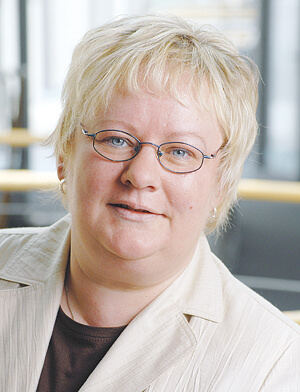Careful use of scarce resources
There is no “Planet B”, no second Earth. Therefore, limited global resources must be used as rationally as possible everywhere in the world in order to avoid waste - called “muda” in the lean methodology - and to optimise value creation at all levels. As an internationally operating company - of whatever size - you can do your part and even benefit from savings in the process. REFA International advises and coaches you in this process, on site, in your branch abroad or also virtually in the form of webinars - not only on this topic.
One of the most important resources is people, because in many areas they bear the main burden of entrepreneurial activities. The efficient deployment of employees is becoming a decisive competitive advantage in the national and international environment, even under the conditions of globalisation and digitisation. The task of a responsible company is therefore to design work systems in such a way that employees can perform their tasks under optimal conditions. In this context, REFA activity samplings have proven their importance in revealing suspected weak spots and identifying potential for improvement.
Activity samplings - the classic in international use
REFA, and thus also REFA International, offers a tool for analysing company operations that has been used for decades and updated time and again: the activity samplings. While time studies, the second classic tool, measure the duration of defined work steps in a process, activity samplings record the frequency of operational processes - including activities, functions and events - at different work systems. The data is collected over a longer period of time at different but predetermined times. These recordings can be handled flexibly: They can be taken over by one or more persons and can also be interrupted and continued later. In intellectual and creative activities, the activity sampling is not carried out by an external observer, but by self-registration by the person performing the work.
In order to be able to make statistically reliable statements for all processes, the number of recordings, i.e. the random observations of workflows in those processes, is adjusted to the desired accuracy of the statement. From the percentage shares of these workflows, their relative and, on the basis of the total process duration, their absolute time requirement can also be calculated. This is the basis for optimisation.
The procedure
The activity sampling consists of an eight-step REFA standard programme with a fixed sequence:
- Determination of the aim
An aim can be formulated, for example, to determine the (time) fractions of certain workflow types in the entire process, the deployment degrees of employees or the utilisation degrees of operating means. - Definition and description of process types
This includes, for example, successive sequences of actions in production, assembly and logistics, which are to be described clearly and identified by brief observation. - Definition of a tour plan and observations location
The tour goes, for example, from the machine shop and the workshop to the warehouse to the respective observation locations. - Determine the number of observations
The number of observations, i.e. the sample size, depends on the desired accuracy of the statement. Statistically relevant are scales of several thousand observations. - Determine times for inspections
Each tour can start, for example, on the hour with a five-minute addition or subtraction from round to round. It is important to determine randomly - also the number of observations per day - so that regularities do not influence the recording. - Carrying out the first 500 observations
The first observations take place e.g. as a trial tour to get to know the workflows and to ensure the implementation quality of the recording. - Interim evaluation
The distribution of frequencies that emerges here can be used to improve the observation procedures and to readjust the number of observations or tours. - Final evaluation
The collected data is evaluated statistically, prepared visually (in the form of graphs and tables) and formulated as statements. In this way, they show potential for rationalisation and savings and can serve as a decision-making aid to optimise processes and reduce throughput times as well as costs.
REFA International: Our range of services
Conducting an activity sampling requires care and methodological know-how. REFA International takes over these examinations for you on site, also in your foreign branch, with highly qualified and experienced experts. All details are provided to you in a clear and legally compliant final report. This allows you to move directly into the analysis and optimisation phase.
If you would like to use your own staff for the activity samplings, REFA International supports you in the efficient implementation with trainings and webinars as well as hardware and software components for data collection and evaluation. This provides you meaningful, documented results that you can use to tap savings and rationalisation potential in your company.




 Bettina Dirks
Bettina Dirks



